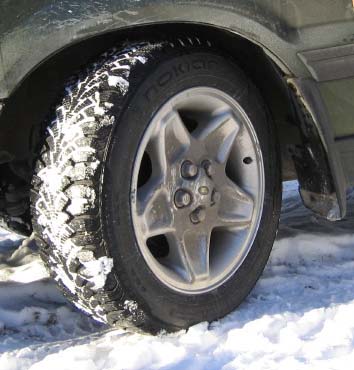The tire category of “All-Season Tires” can be a misleading term and this category gets the most questions out of any tire available. Basically, when you are purchasing All-Season tires, you are getting a very sturdy tire that will work well through various weather conditions as well as varying temperatures or climates. The types of tires that fall under the ‘All-Season’ tire category contain different types of tread compounds, designs, and mileage ratings, and there are some big differences between All-Season Tires, Regular, or ‘summer’ tires (sometimes also referred to as ‘three-season tires’), and Winter Tires.
Thank you for reading this post, don't forget to subscribe!One of the main differences is temperature. Temperature affects tire rubber. For example, firm rubber that can be found in some Regular (non all-season) tires can become more brittle and prone to damage in colder months. Tires that are rated for winter are made of a much softer rubber and perform better in the colder months. However, the softer rubber that performs well in cold temperatures will not wear as well when the temperature heats up and conditions become dry. Let’s look at the following categories to compare:
Summer Tires: This is a term that is used by a lot of consumers and dealers that identifies the tires that one takes off of their car in lieu of putting on winter or “snow” tires. But there is really not a category for “summer tires”. “Regular” or “Non All-season” tires are basically rated for most road conditions, mild climates, and few temperature fluctuations. They will have great performance in the summer months and can be made from a more firm and sturdy rubber which will be able to grip dry or slightly wet roads in most road conditions. If you live in an area with very mild winters, without torrential rainfall, and with pretty stable road conditions, you should do well in purchasing this type of tire. These tires are sometimes referred to as 3-season tires because they will be rated well for performance from the time that the weather heats up until the time that the weather becomes cold.
All- Season Tires: All-Season Tires are a well-rounded (no pun intended) and usually a higher quality, more durable type of tire that is rated to do better with temperature changes and weather related road conditions. All-Season Tires should be able to withstand some of the wear and tear that comes from road conditions related to heat or cold better than Regular or Winter tires. However, having All-Season Tires does not mean the BEST performance in all conditions. For instance, if you live in an area that experiences heavy rainfall and standing water on the road, you will still want to look for a tire rated to move water out of the way. This could still be an All-season Tire, but it will be rated higher for wet conditions. The same would be true for places that experience heavy winter storms. All-Season Tires will be able to perform well in light snow, but they will not be able to provide the best grip with standing snow, slush, or icy roads.
Winter Tires: Winter tires are not designed to be used year round. This is again due to the softer rubber and tread design. Winter tire tread design results in higher void areas within the tread to be able to grip the road and move snow and slush from the tire improving vehicle control in these conditions The softer rubber also helps to better grip the road, and does not become as hard in low temperatures. Some Winter tires can also be purchased with studs, where applicable, to better cut through ice and snow. Winter tires are the best rating when it comes to treading snow and slush out of the way, and performing without sliding or losing grip.
What it comes down to is, what kind of climate are you driving in? What is the best application for your type of car? All-Season Tires are great for almost all drivers and vehicles. But keep in mind, you may still want to switch those bad-boys out for some winter tires if you live in any area that experiences winter storms and icy roads. For mileage, all around performance, and convenience, All-Season Tires work wonders through most road conditions. Explore your options with your Auto Repair and Tire facility to put the best type of tire on your car!


